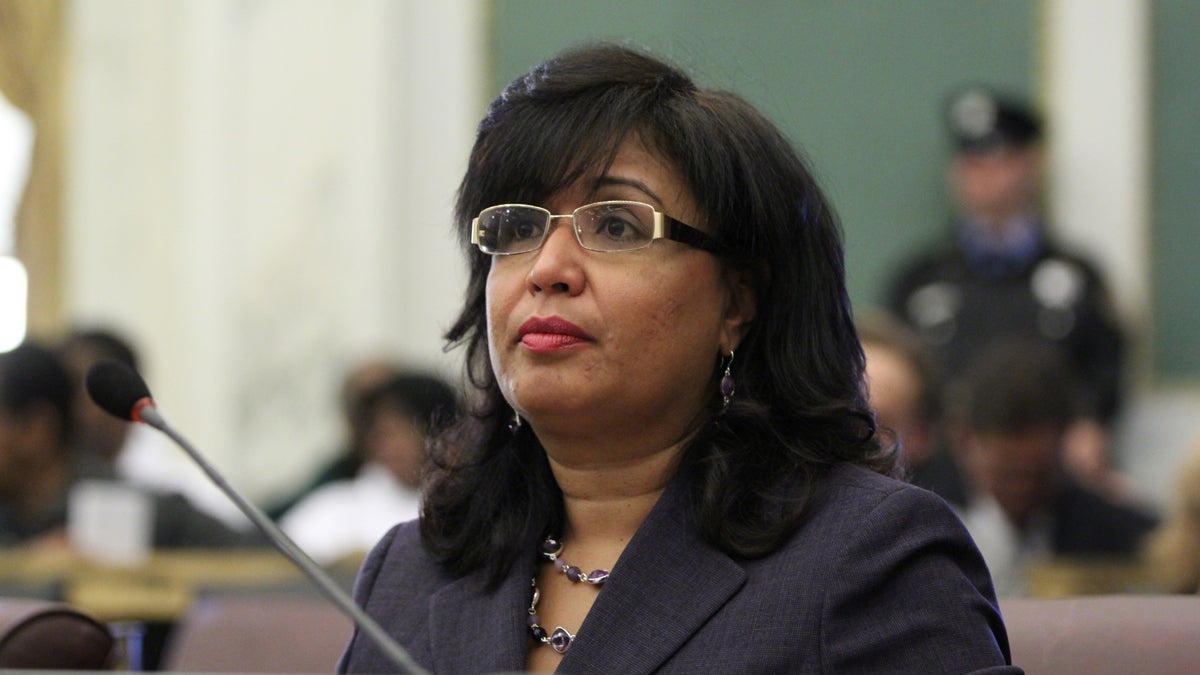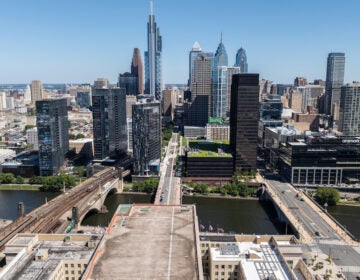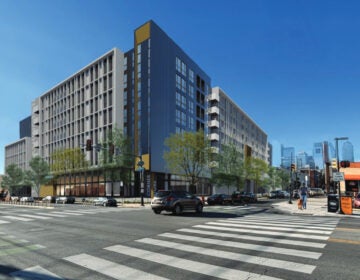New inclusionary zoning bill sweetens deal for developers

After a negative response from developers, Philadelphia City Council has amended the terms of a density bonus intended to raise funds for affordable housing.
“Legislation should be a living document,” said Councilwoman Maria Quiñones-Sánchez, who has lead the charge on the voluntary inclusionary housing bill. “Passing a tool that wouldn’t be utilized wasn’t the goal. So we considered developer feedback in the new amendments.”
The bill amended on Thursday would give developers additional height, density, and floor area in exchange for payments to the Housing Trust Fund, a kind of municipal bank for affordable projects. Developers could also access the bonuses in exchange for the construction of new income-restricted homes.
The most significant change to the bill is in its fee structure. Instead of offering bonuses in exchange for payments into the housing trust fund worth $25-$30 per square foot of a site, the latest version ties the fee to only the additional housing units or square footage granted by the zoning bonus. The tweak is designed to make the bonus cheaper for developers to use and thus, more popular.
The Kenney administration projects that the density bonus could bring in as much as $18 million to the Housing Trust Fund over the next five years.
The bill includes two different types of bonuses. For zoning categories in neighborhood commercial corridors and multi-family rowhouse areas, developers would get height and density bonuses. In exchange, they would pay $20-to-$24 per additional square foot or $25,000-$30,000 per new unit allowed.
For the higher density zoning categories found in Center City and parts of West Philadelphia close to the University of Pennsylvania and Drexel University, developers would get greater floor area in exchange for $25-$30 per extra square foot allowed by the bonus.
The Building Industry Association (BIA), which represents residential developers in the city, said they believed some of the bonuses would work, but that additional tweaks are needed.
“We continue to believe that most of the other bonuses do not align well with the zoning and economic realities of housing development in Philadelphia,” said Leo Addimando, vice-president of the BIA.
The industry group suggested a bonus that would allow developers to trade a contribution to the Trust Fund for a reduction in the number of mandatory parking spaces required in high-density areas.
Philadelphia’s toxic parking politics has so far prevented serious discussion of such a policy.
Developer Ori Feibush, a critic of earlier versions of the bill, said the new language is a step in the right direction but doesn’t go far enough to ensure mass usage on the scale required to meet city goals. He agreed that a policy that enabled developers a way out of costly Center City parking minimums could be popular.
“In Center City, a premium to reduce parking is what would work because it is parking requirements that are inhibiting projects,” said Feibush.
As far as the neighborhood bonuses go, he said that the math is feasible, if not entirely enticing.
“[In the neighborhoods], the new bonus payments aren’t wildly off. Some people will take advantage of it. But if the idea is mass participation the cost of the bonuses is still too high.”
The idea of using density bonuses to raise money for affordable housing is largely untested in Philadelphia. The city’s last attempt at such a policy only applied to the very highest density zoning categories and has only been used a few times. The new bill would make bonuses accessible in many more parts of the city, though still excluding those areas where only single-family housing is allowed.
The bill could be passed by City Council as early as next week.
“We are going to put this tool forward, and we think it will work,” said Quiñones-Sánchez. “If it doesn’t work, we are always open to tweaking it again.”
WHYY is your source for fact-based, in-depth journalism and information. As a nonprofit organization, we rely on financial support from readers like you. Please give today.







